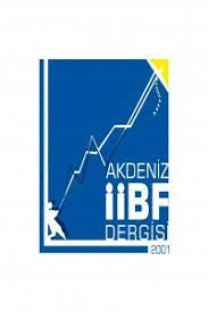İktisatta Evrim Düşüncesi ve Evrimci İktisatın Teknolojiye Yaklaşımı
İktisat bir bilim olarak ortaya çıkışından itibaren evrim düşüncesiden etkilemiştir. İktisatçılar her ne kadar fizik biliminden ve bu bilimin denge kavramsallaştırmasından yoğun bir biçimde etkilenmiş olsalar da; evrim düşüncesi heterodoks ekonomi anlayışları üzerindeki etkisini sürdüregelmiştir. Schumpeter ve Veblen gibi iktisat düşünürlerinin düşünsel mirası üzerinde yükselen evrimci yaklaşımlar, 20. yüzyılın son çeyreği ile birlikte -firma ve teknoloji konuları başta olmak üzere- Neoklasik teoriye güçlü eleştiriler yöneltmeye başlamıştır. Bu çalışma iktisat bilimine evrim düşüncesinin girişi ve bu bilim dalında önemini giderek arttıran evrimci iktisadın teknoloji yaklaşımı üzerine odaklanmıştır.
Evolution Idea in Economics and Technology Approach of Evolutionary Economics
Evolution has influenced economics since its emergence as a science. Although economists have been influenced by the science of physics and the understanding of equilibrium of this science, the idea of evolution has maintained its significance in heterodox understandings of economics. Starting with the last quarter of the 20th century, evolutionary approaches building up on the heritage of respectable philosophers of economics such as Schumpeter and Veblen have started put up strong criticisms against the neoclassical theory, especially on firms and technologies. The paper focuses on the introduction of the idea of evolution into economics and the technological approach of evolutionary economics, which is increasingly becoming important in economics.
___
- BASALLA, G. (2000) Teknolojinin Evrimi, çev. Cem Soydemir, Ankara: TÜBİTAK
- CLARK, N; C. J. (1988) “Evolutionary Theories in Economic Thought”, Dosi, G., C. Freeman, R. R. Nelson, G. Silverberg, and L. Soete (eds), Technical Change and Economic Theory içinde, London: Pinter, 197-218
- DAWKINS, R. (2002) Kör Saatçi, çev. Feryal Halatçı, Ankara: TÜBİTAK
- DEMİR, Ö. (1996) Kurumcu İktisat, Ankara: Vadi Yayınları.
- DOSI, G.; RICHARD R. N. (1994) “An Introduction to Evolutionary Theories in Economics”, Journal of Evolutionary Economics, 4, 153-172.
- DOSI, G. (1988) ”The Nature of the Innovative Process”, G. Dosi, C. Freeman, R. R. Nelson, G. Silverberg, and L. Soete (eds), Technical Change and Economic Theory içinde, London: Pinter Publishers, 221-238
- DOSI, G.; SOETE L. (1988) “Technical Change and International Trade”, G. Dosi, C. Freeman, R. R. Nelson, G. Silverberg, and L. Soete (eds), Technical Change and Economic Theory içinde, London: Pinter Publishers, 401-431
- EKELUND, R. B.; HEBERT R. F. (1990) A History of Economic Theory and Method, New York: Mc Graw Hill Publishing
- FREEMAN, C. ; SOETE L. (2003) Yenilik İktisadı, çev. Ergun Türkcan, Ankara: TÜBİTAK
- FREEMAN, C. (1992) The Economics of Hope, London: Pinter Publishers.
- HEILBRONER, R. L.(2003) İktisat Düşünürleri, çev. Ali Tartanoğlu, Ankara: Dost Kitabevi Yayınları.
- HODGSON, G. M.(1994) “Precursors of Modern Evolutionary Economics: Marx, Marshall, Veblen, and Schumpeter”, R. W. England(ed), Evolutionary Concepts in Contemporary Economics içinde, The University of Michigan Press, 9-35
- METCALFE, J.S.; GIBBONS M.(1995) “Technological Variety and the Process of Competition”, G.M. Hodgson (ed), Economics and Biology içinde, Edward Elgar Publishing, 428-455
- NELSON, R. R. (1994) “The Coevolution of Technologies and Institutions”, R. W. England (ed), Evolutionary Concepts in Contemporary Economics içinde, The University of Michigan Press,139-156
- PAVITT, K. (1984) “Patterns of technical change: towards a taxomony and a theory”, Research Policy, vol: 13, no:6, 343-374
- RADZICKI, M. J.; STERMAN J. D. (1994) “Evolutionary Economics and System Dynamics”, R. W. England (ed), Evolutionary Concepts in Contemporary Economics içinde, The University of Michigan Press, 61-89.
- RUTTAN, V. (1959) ”Usher and Schumpeter on invention, innovation and technological change”, Quarterly Journal of Economics, November, 596-606.
- SAMUELS, W.J.; SCHMID A. A.; SHAFFER J. D. (1994) “An Evolutionary Approach to Law and Economics”, R. W. England(ed), Evolutionary Concepts in Contemporary Economics içinde, The University of Michigan Press, 93-110.
- SCHUMPETER, J.A. (1986) History of Economic Analysis, New York: Oxford University Press.
- SCHUMPETER, J.A.. (1966) Kapitalizm Sosyalizm ve Demokrasi, 1. cilt, çev. Tunay Akoğlu, İstanbul: Varlık Yayınları.
- SCHUMPETER, J.A.. (1939) Business Cycles, New York: Mc Graw Hill Publishing
- SCHUMPETER, J.A.. (1968) The Theory of Economic Development,Cambridge: Harvard University Press
- SOYAK, A.(1995) “Teknolojik Gelişme: Neoklasik ve Evrimci Kuramlar Açısından Bir Değerlendirme”, Ekonomik Yaklaşım, 6, 15 (http://mimoza.marmara.edu.tr/~asoyak/ekonomikyaklasım.htm)
- TURKCAN, E. (1981) Teknolojinin Ekonomi Politiği, Ankara: AİTİA.
- UZUN, E. vd. (2002) Felsefe Sözlüğü, Ankara: Bilim ve Sanat.
- ÜŞÜR, İ. (2002) “Teknoloji Felsefesi Üzerine ya da Tarihin Tanrısı Teknoloji Midir?”, Mülkiye Dergisi, cilt: XXV, sayı:230, 7-26.
- VEBLEN, T. (1979) The Theory of the Leisure Class, New York: Penguin
- VEBLEN, T.(1990) The Place of Science In Modern Civilization and other essays, Newbrunswick: Transaction Publishers.
- VROMEN, J.; JOHN G.(1997) “Theory of the Firm Revisited: New and Neo-institutional Perspectives”, L. Magnusson; J. Ottoson(eds), Evolutionary Economics and Path Dependence içinde, Cheltenham, UK; Brookfield, US : Edward Elgar, 33-56
- ISSN: 1302-9975
- Yayın Aralığı: Yılda 2 Sayı
- Başlangıç: 2001
- Yayıncı: Akdeniz Üniversitesi
Sayıdaki Diğer Makaleler
Birleşmiş Milletler Barışı Koruma Operasyonları ve Güç Kullanma Olgusu (1946-1996)
İktisatta Evrim Düşüncesi ve Evrimci İktisatın Teknolojiye Yaklaşımı
Türk İmalat Sanayiinin Rekabet Gücü ve Beyaz Eşya Sektörü Üzerine Bir İnceleme
Niş Pazarlama Prensipleri ve Ortopedik Destek Ürünleri Pazarı Örneği
Hanehalkı Tipi ve Kır-Kent Ayırımının Diskriminant Analizi ile İncelenmesi
Ulusal Otel Yöneticilerinin Uluslararası Otel Yöneticiliğine Bakışı ve Tutumları
Rabia ÇİZEL BATO, Bahattin ÖZDEMİR
Gıda Perakendeciliğinde Market Markalı Ürün Stratejisi
Celile DÖLEKOĞLU ÖZÇİÇEK, Mevhibe ALBAYRAK
Yönetim Muhasebesinin Kavramsal Gelişim Sürecinin Değerlendirilmesi
Adnan DÖNMEZ, Burcu UTKU DEMİREL, P. Başak BERBEROĞLU, Ayten ERSOY
